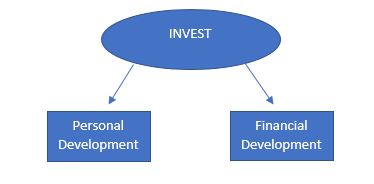Exercising is an essential part of the daily routine most resources say that we as humans need at least thirty minutes of physical activity (exercise) per day. When you really put things into perspective taking half an hour to maybe get on a machine, lift a few weights, take a walk or whatever may be your workout of choice really will not take that much time out of your day and the greatest part about it is that it improves your mental state and keeps your mind sharp. In addition, when you go look in the mirror and see those baby abs start forming, or muscle gains increasing that truly triggers the activity becoming habitual and will boost the frequency of optimistic outlooks throughout the endeavors in your day.
There are plenty of good reasons to be physically active. Below is a list of a few specific ways that exercising improves mental health and can truly translate to improving your financial decisions.
1. Reduce stress. Take a walk or head to the gym for a quick workout. One of the most common mental benefits of exercise is stress relief. Working up a sweat can help manage physical and mental stress. Exercise also increases concentrations of a chemical that can moderate the brains response to stress so that you will not make spontaneous purchases or waste money on unnecessary things. So go ahead and get sweaty—working out can reduce stress and boost the body’s ability to deal with existing mental tension. Win-win!
2. Boost happy chemicals. Slowly making it through a few miles on the treadmill, but it’s worth the effort! Exercise releases endorphins, which create feelings of happiness and euphoria. Studies have shown that exercise can even alleviate symptoms among the clinically depressed. For this reason, doctors recommend that people suffering from depression or anxiety (or those who are just feeling down) pencil in plenty of gym time. In some cases, exercise can be just as effective as antidepressant pills in treating depression. Don’t worry if you’re not exactly in the shape you want to be yet, it is all a process. Getting a happy buzz from working out for just 30 minutes a few times a week can instantly boost overall mood.
3. Improve self-confidence. Hop on the treadmill to look (and more importantly, feel) like a million bucks as well as earning a million bucks. On a very basic level, physical fitness can boost self-esteem and improve positive self-image. Regardless of weight, size, gender, or age, exercise can quickly elevate a person’s perception of his or her attractiveness, that is, self-worth. So you will begin to truly love yourself and value yourself monetarily much more.
4. Enjoy the great outdoors. For an extra boost of self-love, take that workout outside. Exercising in the great outdoors can increase self-esteem even more. Find an outdoor workout that fits your style, whether it’s rock-climbing, hiking, renting a canoe, or just taking a jog in the park. Plus, all that Vitamin D acquired from soaking up the sun (while wearing sunscreen, of course!) can lessen the likelihood of experiencing depressive symptoms. Why book a spa day when a little fresh air and sunshine (and exercise) can work wonders for self-confidence and happiness?
5. Prevent cognitive decline. It’s unpleasant, but it’s true—as we get older, our brains get a little…hazy. As aging and degenerative diseases like Alzheimer’s kill off brain cells, the noggin actually shrinks, losing many important brain functions in the process. While exercise and a healthy diet can’t “cure” Alzheimer’s, they can help shore up the brain against cognitive decline that begins after age 45. Working out, especially between age 25 and 45, boosts the chemicals in the brain that support and prevent degeneration of the hippocampus, an important part of the brain for memory and learning.
6. Boost Brainpower. Various studies have shown that cardiovascular exercise can create new brain cells (aka neurogenesis) and improve overall brain performance. Studies suggest that a tough workout increases levels of a brain-derived protein in the body believed to help with decision making, higher thinking, and learning. (CH-CHING-$$$!)
7. Sharpen memory. Regular physical activity boosts memory and ability to learn new things. Getting sweaty increases production of cells responsible for memory and learning. Working out can truly boost memory among grown-ups. A study showed that running sprints improved vocabulary retention among healthy adults.
8. Get more done. Feeling uninspired some days? The solution might be just a short walk or jog away. Research shows that workers who take time for exercise on a regular basis are more productive and have more energy than their more sluggish peers. While busy schedules can make it tough to squeeze in a gym session in the middle of the day, some experts believe that midday is the ideal time for a workout due to the body’s natural rhythms.
9. Tap into creativity. Most people end a tough workout with a hot shower, but maybe we should be breaking out the colored pencils instead. A good blood-pumping gym session can boost creativity for up to two hours afterward. Supercharge post-workout inspiration by exercising outdoors and interacting with nature. Next time you need a burst of creative thinking, hit the trails for a long walk or run to refresh the body and the brain at the same time.
10. Inspire others. Whether it’s a pick-up game of football, a group class at the gym, or just a run with a friend, exercise rarely happens in a bubble. And that’s good news for all of us. Studies show that most people perform better on aerobic tests when paired up with a workout buddy. Pin it to inspiration or good old-fashioned competition, nobody wants to let the other person down. In fact, being part of a team is so powerful that it can actually raise tolerances for things. Even fitness beginners can inspire each other to push harder during a sweat session, so find a workout buddy and get moving! Because we want to inspire you to be the best you in your daily decision making translating that into the best monetary gains you can accumulate as well.
Regular exercise changes the brain to make an overall better you, so you will begin to make better decisions regarding the way your finances are handled as well due to the overall theme of “taking better care of things” stamped in your mind. So when it comes to spending as we covered last week you will hopefully choose to spend more wisely (reference first article Money Mindset). Now that you have made up in your mind not to buy those $300 sneakers or $1000 pair of heels you can take yourself to exercise(remembering all the aforementioned benefits above) and then take that same amount of money and make a wise investment such as finding a new skill to learn like beginning an exploratory fundamental education about how to start making your money work for you.
Learn.Invest.Trade

